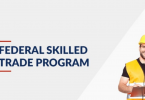Are you a recent graduate looking for an entry-level engineering job in Canada? Applying for entry-level engineering jobs can be daunting, but it doesn’t have to be.
This blog post will provide guidance and advice on how to find and apply for entry-level engineering jobs in Canada.
From knowing the requirements and researching job postings to tailoring your resume, we will cover everything you need to know to land your ideal entry-level engineering job.
SEE ALSO: How to Become an Engineering Technician
Knowing the Requirements
If you want to pursue an entry-level engineering job in Canada, there are specific requirements that you must meet to qualify.
Generally, all employers require that applicants have a degree in engineering from a Canadian college or university.
In addition, many employers also look for applicants with strong academic backgrounds and technical skills.
You should also know the provincial and territorial requirements for engineering positions in Canada.
Depending on the province or territory, different rules and regulations may apply. For example, some provinces require professional engineers to have a license, while others do not.
Therefore, it is important to research the specific requirements for your province or territory before you start your job search.
The Canadian Council of Professional Engineers is also an excellent source of information on requirements and standards for engineering professionals in Canada.
They provide detailed information on the various licenses and certifications required in each province and territory.
Furthermore, they provide resources and guidance to help engineers gain certification and licensure. This is an invaluable resource if you want to work as an engineer in Canada.
Finding the Job Postings
When applying for entry-level engineering jobs in Canada, the first step is to find job postings that match your skills and interests. There are a few ways to find the right job postings for you.
First, you can search online for entry-level engineering jobs in Canada. Sites like Indeed and Glassdoor offer a range of job postings from various industries and sectors.
They also allow you to narrow your search based on location, company type, salary, etc.
You can also set up alerts to get notified of new postings as soon as they become available.
Additionally, you can use social media platforms such as LinkedIn and Twitter to find job postings relevant to your career goals.
Companies often post job openings on social media, so check them regularly.
Additionally, follow recruiters and headhunters on LinkedIn and other social media platforms. They often have exclusive access to job openings before they publicly post them.
You can also look for job postings on industry-specific websites, magazines, and journals.
These publications usually include job postings from various employers looking for entry-level engineers.
It’s important to ensure that the jobs posted on these publications are legitimate, though you research the companies before applying.
Finally, remember to network. Attend career fairs and connect with professionals in your field. They may know of job openings before they are posted publicly.
Make sure to also connect with alums and friends who work in engineering-related fields. They can put you in contact with hiring managers or point you in the right direction.
Following these steps, you can find plenty of job postings for entry-level engineering jobs in Canada.
SEE ALSO: Engineering – Marine Advisor I at ABNL Limited
Submitting the Application
Once you have all of your documents and information ready, it is time to submit your application. Many entry-level engineering jobs in Canada have an online application process.
This can include filling out a form or submitting your CV and cover letter electronically.
Be sure to double-check that you have filled out all the necessary fields in the form and that the information you have provided is accurate.
Once you have completed and submitted your application, you should get a confirmation email.
When submitting your CV and cover letter, follow the instructions provided by the company, as different companies will have other requirements for documents.
If a company asks for specific documents such as certificates or other proof of education, provide these as well.
Once your application is complete, be sure to follow up on it. You can call the company a few days after submitting your application to ensure it has been received and show interest in the position.
Tips for a Successful Application
When applying for an entry-level engineering job in Canada, there are certain things you can do to ensure your application stands out from the competition.
Here are some tips to ensure your application is successful:
1. Write a Targeted Cover Letter
Your cover letter should be tailored to the job you’re applying for and demonstrate your enthusiasm and interest in the role.
2. Do Your Research
Make sure you research the company and read through the job posting carefully so that you’re able to discuss why you’re an excellent fit for the position during an interview.
3. Provide Relevant Examples
Include specific examples from past experiences or academic achievements in your CV or cover letter demonstrating why you’re an ideal candidate for the role.
4. Network
Reach out to people who work at the company or are connected to the industry and ask them to refer you for the job. Networking can go a long way in helping you get noticed by hiring managers.
5. Follow Up
After submitting your application, follow up with the employer to ensure they’ve received it within a few days.
By following these tips, you’ll be well on your way to securing an entry-level engineering job in Canada.
SEE ALSO: Lead Engineer – Service Engineering (Oilfield…
Conclusion
Applying for entry-level engineering jobs in Canada is a multi-step process that requires research, preparation, and persistence.
Creating an effective resume and cover letter that demonstrate your relevant experience and qualifications is important.
Networking can be a great way to find job opportunities and connect with other engineers.
Finally, when applying for jobs, follow the instructions and submit your application as soon as possible.
You can land an entry-level engineering job in Canada with the right approach and attitude. Good luck.






